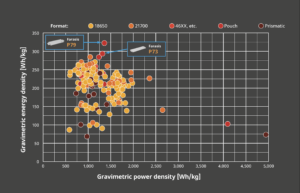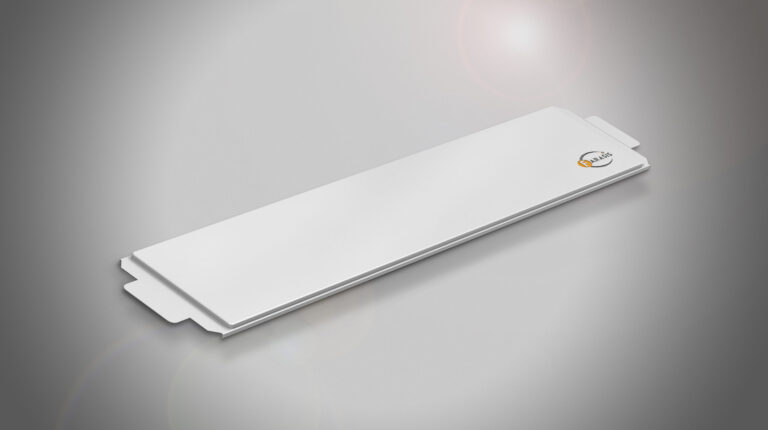Farasis Energy, a lithium-ion battery producer, submitted its high-performance P73 and P79 cells for testing to Batemo, a technology company that specializes in the development of simulation software for lithium-ion batteries.
The P73 cell belongs to the first cell generation, while the P79 cell is an ultra-high-performance variant of the fourth generation.
In collaboration with Farasis Energy, Batemo opened the cells to create a model and analyzed the electrical, chemical, mechanical and thermodynamic components.
Experimental cell measurements of the individual electrodes, impedance spectroscopy and microstructural investigations – using a scanning electron microscope (SEM) and energy dispersive x-ray spectroscopy (EDX) – were also taken.
The resulting material parameters form the basis of the Batemo simulation model. The global validity with maximum model accuracy was verified by constant current and pulse measurements in the charging and discharging direction for the entire operating range at cell temperatures from -20°C to 58°C, and currents of more than 600A.

Compared with other cells tested, Batemo says the P73 and P79 cells performed particularly well in terms of gravimetric energy density in the Batemo Cell Explorer. The P73 cell achieved 294Wh/kg and the P79 cell 323Wh/kg.
“We have already developed a module concept for the fourth generation of cells that prevents thermal propagation, thermal runaway of the module in the event of damage, in the latest generation of cells (Generation 4). These cells therefore not only deliver the best energy density but also offer absolute safety during integration at system level,” explained André Gronke, head of overseas product development at Farasis Energy.


